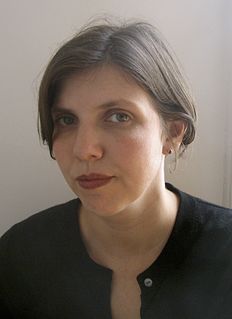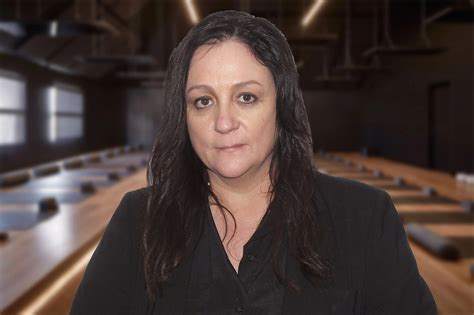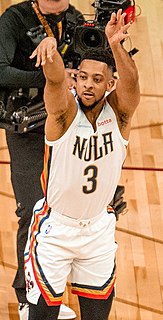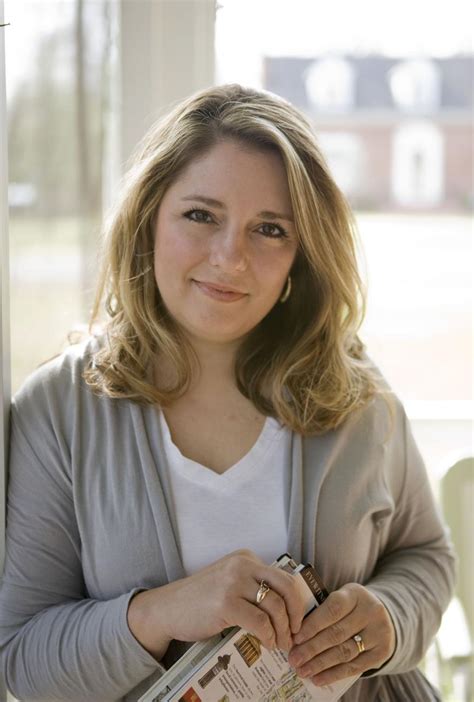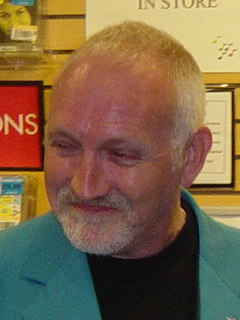A Quote by Bryan Stevenson
When we create the right kind of identity, we can say things to the world around us that they don't actually believe makes sense. We can get them to do things that they don't think they can do.
Related Quotes
I think that when we're looking at things when we're right in the center of things, as opposed to being a bit unmoored from what's going on around us, we see things through a kind of dulling lens of convention, and there's something about extreme emotional experiences that gives us a heightened clarity, I think, of thought and of feeling.
I happen to believe the world will change only when we change ourselves. And that starts with finding ourselves: learning to quiet the clamor in our minds and the voices of everyone around us and move toward what feels right – toward the things we know, for reasons we can’t explain, that we’re mean to do, the things that makes us feel alive.
We think the problem is out there, when the problem is really in here - who we are and how we experience the world around us. The acoustic ecologist listens, as the primary sense, to the world around us, and I believe that they have a significant contribution to make to all environmental groups who think that they're solving environmental problems, when we're actually all on a spiritual pilgrimage.
When I was thinking about all the things that the world had forgotten, it made me think about people who have actually really forgotten everything, and how much of our identity is wrapped up in those memories, and how much of our experience makes us who we are, and remembering those experiences makes us who we are.
I'm trying to educate people about things that I believe are right, and some of the things that I believe are right might not be right, so I live in constant self-doubt. I think that creates a kind of search that you have to have, and it prevents you from doing a lot of stuff that you would normally do.
If you are harboring the slightest bitterness toward anyone, or any unkind thoughts of any sort whatever, you must get rid of them quickly. They are not hurting anyone but you. It isn't enough just to do right things and say right things - you must also think right things before your life can come into harmony.
Science,' said Mr Anders Anders. 'Science, not magic. I told you before: when things are not as they appear to be, it's because they're actually simpler than you think them to be. Things are never as difficult and complicated as folk believe. You'd be surprised just how straightforward and obvious things really are. The secret is in knowing how to look at them the right way.
There tends to be a sort of mundane quality to what I select - things from around the house, around the studio. I'm not ashamed of the craft shop - the art supply store - and I don't need my work to be anti-art store, but I also believe in using things that are just sort of around - it makes sense to me.
There's this belief that some things can be taken seriously in an intellectual way, while some things are only entertainment or only a commodity. Or there's some kind of critical consensus that some things are "good," and some things are garbage, throwaway culture. And I think the difference between them, in a lot of ways, is actually much less than people think. Especially when you get down to how they affect the audience.
That's the way to get young people. Once they see there are wonderful things to hunt for, to rediscover a species that was thought to be extinct or is extremely rare, to be the first to see a nest, to discover a new species unsuspected close to your home - these are things, I think, with a little education and excitement and the right kind of natural history would actually start a movement that makes going back to nature a profitable adventure.

